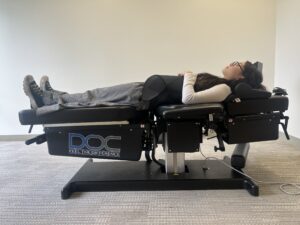Do you have TMJ pain? Do you wake up with jaw pain on one side?
It’s summertime, and you’re attempting to juggle a hectic work routine and vacation. Simply put, you’re on the grind — yet what sort of grind?
Maybe your friend has pointed out that you have been grinding your teeth, a formal or involuntary activity likewise known to be called bruxism, for the day or, all the more frequently, during the night.
Have questions? Our TMJ expert in San Francisco can offer guidance.
Why does our brain signal us to grind our teeth?
The human brain bears a lighter and more profound phase of sleep. As it approaches a bottomless part of the sleep, the body discharges control of various parts and organs of the body, including the jaw and tongue. The jaw turns out to be overwhelmed, and the tongue can extend to twice its size, both hindering the airway and thus making breathing very hard. A discovery from researchers has identified that those who undergo any blockage during the night grind their teeth to reopen their airway.
This discovery introduces an obvious issue — pain — yet it also has numerous consequences. These intricacies include:
Tooth stress fractures
- These regularly show up within the initial state of teeth grinding and are commonly noticed on the molars. A lot of patients mistakes the discoloration to be cavities, and without taking care of this properly, they tend to lose some part of their teeth. At the point when the severity has gotten to a certain stage, only complete restoration of the tooth can fix the teeth.
Too much exertion from the upper and lower jaw
- As the teeth get shortened, the upper and the lower jaw need to be remunerated and come together with greater impact to chew. This exacerbates the initial issue.
Eroded enamel
- Steady clenching and grinding bit by bit disintegrate the teeth’s enamel or the hard, glossy substance that covers the teeth.
Temporomandibular Joint (TMJ) Syndrome
- When excessive pressure on the jaw becomes a routine, patients regularly are diagnosed with TMJ.
Temporomandibular Joint (TMJ) Syndrome
Despite the fact that the jaw is the human skull’s biggest bone, it only has the ability withstands so much weight. Temporomandibular Joint Syndrome is a disease that is found commonly in patients who complain of grinding their teeth. Bones, veins, and nerves made up your TMJ, which you have two of — one on each side of your jaw.
Symptoms of TMJ syndrome that might be cause for a visit to the chiropractor are:
- Cerebral pain
- Ear infection
- Chronic jaw pain
- Chewing problem
- “Clicking” from the jaw.

How can our San Francisco chiropractor offer assistance?
By reducing tension in your spine (particularly in your upper back and neck), chiropractors can eliminate dysfunction that has to do with pressure on nerves that are connected with either or both of your TMJs.
If you’re searching for a TMJ Specialist in San Francisco, we can assist! Active Release Technique (ART) is one particular system that enables chiropractors to reduce adhesions and stress in your jaw muscles. At the point when your TMJ can relax and come back to its appropriate motion, the pain will leave.
Some recommendations from our San Francisco chiropractors:
- Consider incorporating exercises that exclude stress into your day by day routine.
- Turn off electronics at least one hour before going to bed.
- Take note of your sitting posture, standing posture and sleeping posture.
- Keep your teeth separated
- When you are chewing, your teeth should only touch instantly.
- Keep away from over-opening your jaw
- Yawning is one of the numerous exercises that will make you over-stretch your jaw. Attempt keeping your tongue on the roof of your mouth while doing so to avoid over-opening your jaw.
- Wear a mouth guard
- In case you’re looking to wear a mouth guard when resting, consider adjustment splints. They are flat and will be able to cover all of the teeth. These guards ease the TMJs and subsequently minimize any facial pain.
- Ensure that you turn off all the lights in the room before going to bed.
- Try making use of black-out curtains if the light is seeping into your room from the street.
Are you searching for a TMJ specialist in San Francisco? To get to the root cause of pain and discomfort, schedule an initial consultation, including a comprehensive evaluation and first treatment.




